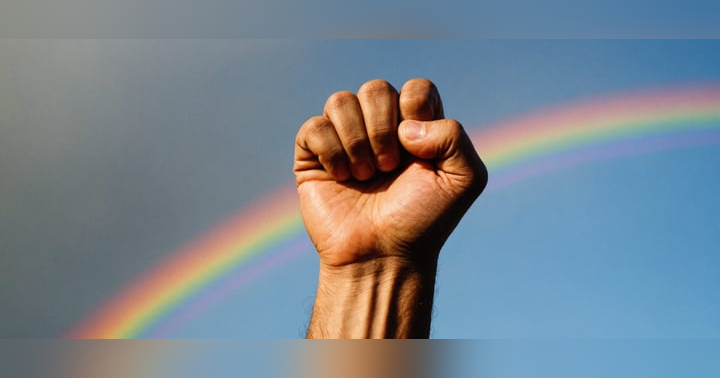Healing After Heartbreak: Navigating Breakups for Gay Men

Broken Up with During Sex?
Breakups are never easy, but for gay men, the journey often comes with additional complexities tied to identity, societal pressures, and close-knit community dynamics. Jonathan Lee’s book, 40 Single Gay, offers an intimate exploration of these challenges, recounting his path from heartbreak to healing. His story provides insight into the unique struggles gay men face when relationships end and serves as a guide for rediscovery and growth.
The Weight of Emotional Grief
The end of a relationship often mirrors the stages of grief: denial, anger, bargaining, depression, and eventual acceptance. For gay men, this emotional journey may be compounded by unresolved trauma, internalized societal pressures, or the loss of a vision for the future that had been shaped within the relationship.
A breakup doesn’t just signify the loss of a partner—it can also feel like the dismantling of an identity or the collapse of a shared narrative. The intersection of personal and cultural expectations often creates additional emotional weight, making it harder to navigate the path forward.
Harmful Coping Mechanisms and the Path to Self-Awareness
In the wake of a breakup, it’s common to seek distractions to avoid confronting painful emotions. Some turn to dating apps, obsessively monitor their ex’s online presence, or dive headfirst into new relationships. These behaviors, while temporarily comforting, often delay the necessary work of processing emotions and finding closure.
Engaging in such actions can lead to a self-perpetuating cycle of comparison, insecurity, and unprocessed pain. While it’s natural to feel a desire to maintain a connection to an ex—whether out of habit or longing—it’s crucial to recognize when such behaviors become self-destructive. Healing begins when one has the courage to pause, reflect, and prioritize emotional well-being over immediate gratification.
Facing Loneliness and Redefining Solitude
For many gay men, the fear of being alone can be a significant barrier to healing. This fear often stems from societal narratives that equate relationship status with personal value or success. As a result, some remain in unfulfilling relationships or rush into new ones, simply to avoid the discomfort of solitude.
However, solitude can be a transformative experience when reframed as an opportunity rather than a void. Time spent alone allows individuals to rediscover themselves, reflect on what they truly want in a partner, and build a stronger sense of self-worth. It’s also a chance to foster non-romantic relationships—close friendships, chosen family, and community connections—which can provide immense emotional support and joy.
Healthy Strategies for Healing
Recovering from a breakup requires a balance of self-care, reflection, and intentional actions. While each individual’s journey is unique, there are several strategies that can help:
- Seek Emotional Support
Therapy, support groups, or open conversations with trusted friends can provide a safe space to process feelings. These outlets can help individuals untangle the complex emotions tied to a breakup and address deeper insecurities or patterns. - Channel Energy into Growth
Breakups can serve as a catalyst for personal development. Picking up a new hobby, taking a class, or setting career goals can be a constructive way to redirect energy and build confidence. - Set Boundaries
Maintaining communication with an ex is often tempting, particularly within close-knit LGBTQ+ communities. However, it’s important to recognize when such interactions hinder emotional recovery. Setting boundaries—whether by limiting contact or taking a break from mutual social circles—can create the space needed to heal. - Embrace Physical and Emotional Self-Care
Exercise, mindfulness practices, and journaling can help process emotions in a healthy way. Activities like hiking, yoga, or even redecorating a living space can bring a sense of renewal and control during an emotionally turbulent time.
Moving Beyond the Pain
The pain of a breakup often feels all-encompassing, but it also holds the potential for profound transformation. By shifting the focus from the loss to the possibilities ahead, gay men can reclaim their individuality and reimagine their future.
Rediscovering self-worth is an essential part of this journey. It’s about letting go of societal narratives that tie personal value to a relationship and finding fulfillment in one’s passions, friendships, and accomplishments. The end of a relationship is not the end of a story but the beginning of a new chapter, one that offers the opportunity to grow stronger, more self-assured, and aligned with one’s authentic self.
Finding Closure and Moving Forward
Jonathan Lee’s journey, as chronicled in 40 Single Gay, offers a poignant reminder that breakups, while painful, can be a catalyst for profound self-discovery. Through reflection, Jonathan uncovered his capacity for connection, the value of community, and the importance of embracing differences, even within his family. By channeling his emotions into writing, he found clarity and a sense of purpose, turning a personal challenge into an opportunity for growth.
For gay men navigating a breakup, these experiences highlight the importance of self-compassion and introspection. Breakups are temporary disruptions, but they can illuminate what truly matters—whether that’s building deeper friendships, fostering community, or prioritizing one’s own well-being. Taking time to reflect and make intentional choices can lead to lasting fulfillment, even in the face of heartbreak.
Healing is a process, and it’s okay to lean on supportive friends, explore new paths, and rediscover what brings joy. As Jonathan’s story demonstrates, moving forward isn’t about erasing the past—it’s about using it as a stepping stone to a brighter, more authentic future.
And remember: every day is all we have, so you've got to make your own happiness.
For more information on this topic, listen to Episode 64. 40 Single Gay (with Jonathan Lee).
Tune into your favorite podcast player every Tuesday for new episodes of A Jaded Gay.


















